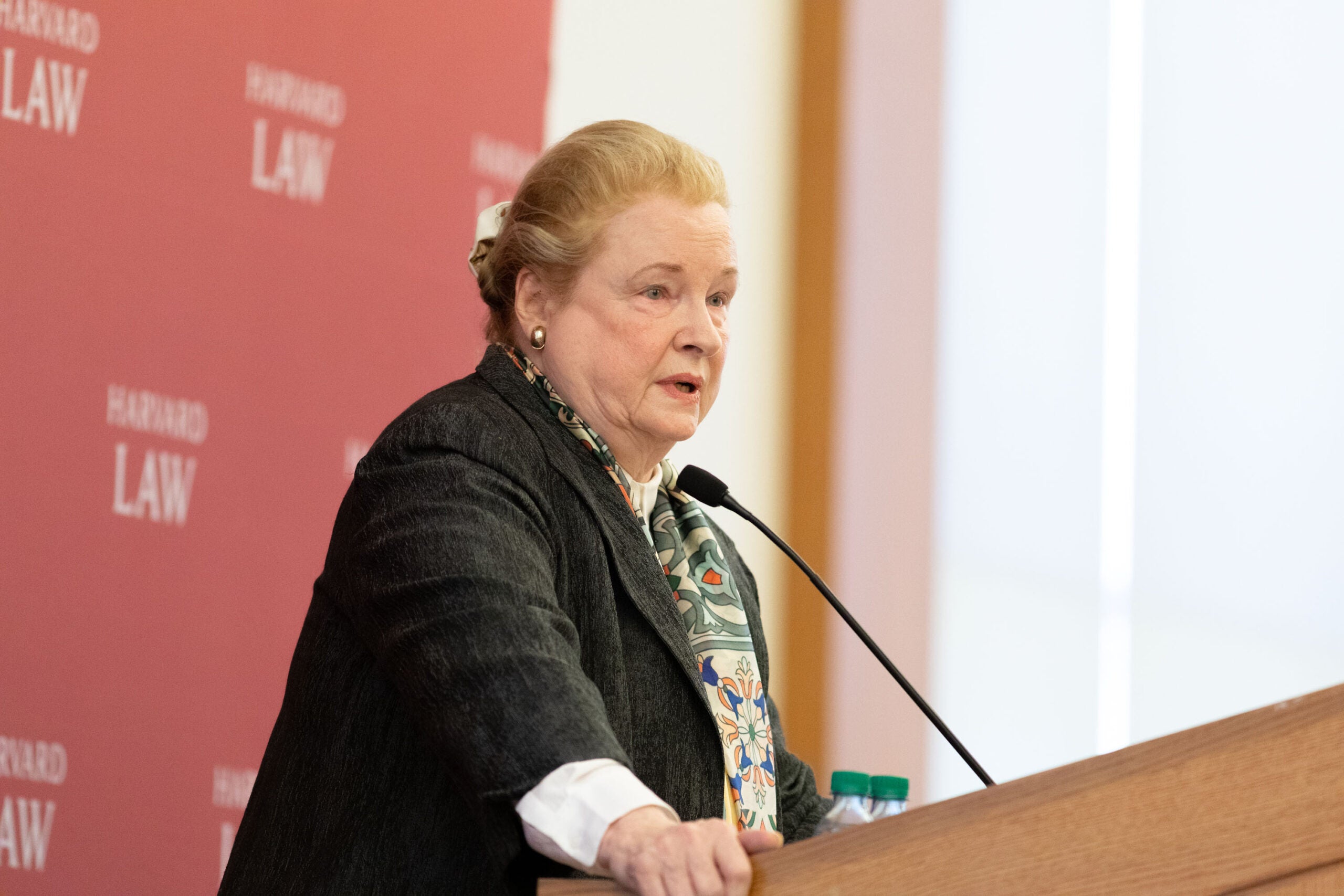Contrary to popular conception, the late Supreme Court Justice Antonin Scalia ’60 believed America had much to learn from laws adopted by nations abroad, according to Harvard Law School Professor Mary Ann Glendon. In an address titled “Who Needs Foreign Law?,” Glendon, the Learned Hand Professor of Law, gave a clear, if somewhat surprising, answer: the late Justice Scalia did.
“The answer that Justice Scalia would have given is that practically every branch of the legal profession could benefit from consulting the experiences of other countries, except judges in constitutional cases,” she said. “And even there, he had one exception. He was perfectly happy to consult pre-1787 English law in determining the meaning of the United States Constitution.”
Glendon’s comments came as part of the Justice Antonin Scalia Lecture, a series established in 2013 to promote and advance the understanding of the founding principles and core doctrines of the U.S. Constitution.
Glendon admitted that the audience might be experiencing an understandable level of disbelief, given Scalia’s many statements denouncing the use of foreign law during his 20 years on America’s highest court. “Now, some of you may be thinking, ‘Excuse me? Scalia and foreign law?’”
“Is this the same Antonin Scalia who dissented so vigorously over mere references to foreign law in certain Supreme Court cases?” she asked rhetorically. “Would it be the same Antonin Scalia who was called by commentators at the time ‘a nativist,’ a ‘Know Nothing,’ and ‘a rampant xenophobe?’”
She cited several seminal instances in which Scalia had objected to the use of foreign law in constitutional decisions. For instance, in a January 2005 debate with Associate Justice Stephen Breyer ’64, Scalia had asked “of what conceivable value as authoritative would foreign law be” in understanding the evolving standards of decency in American society.
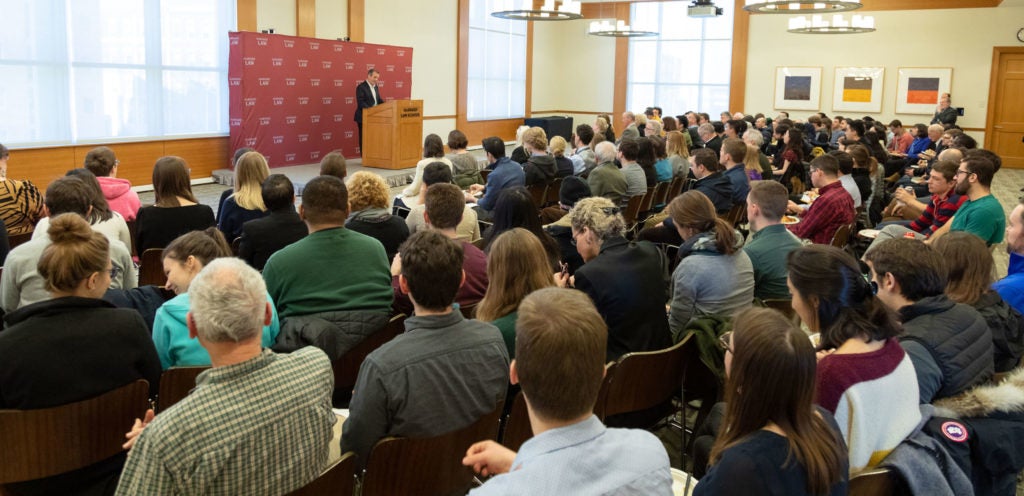
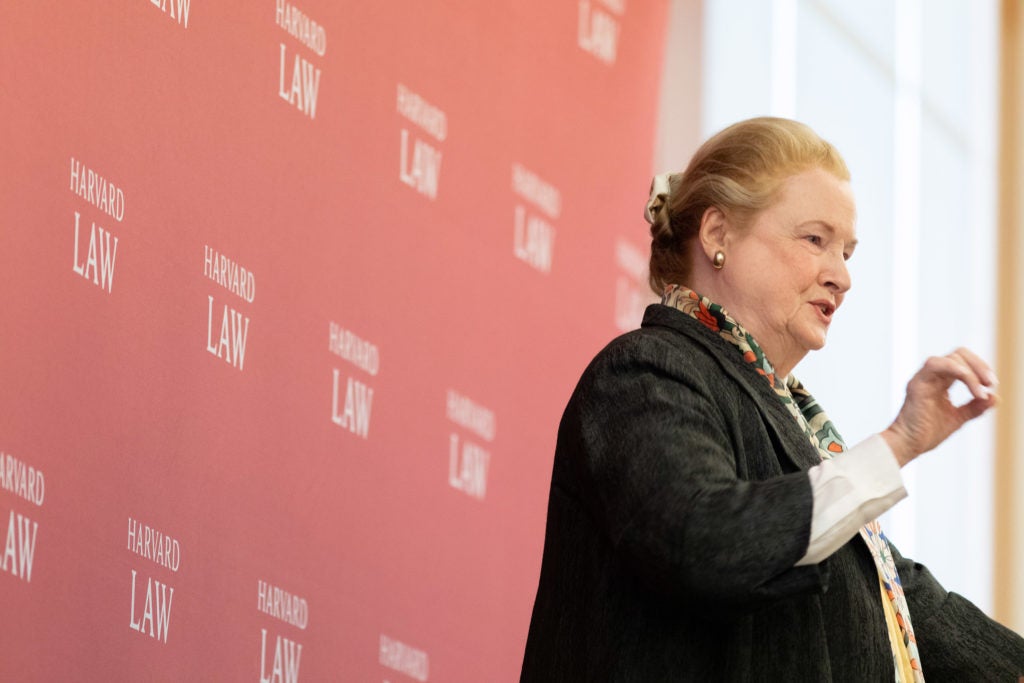
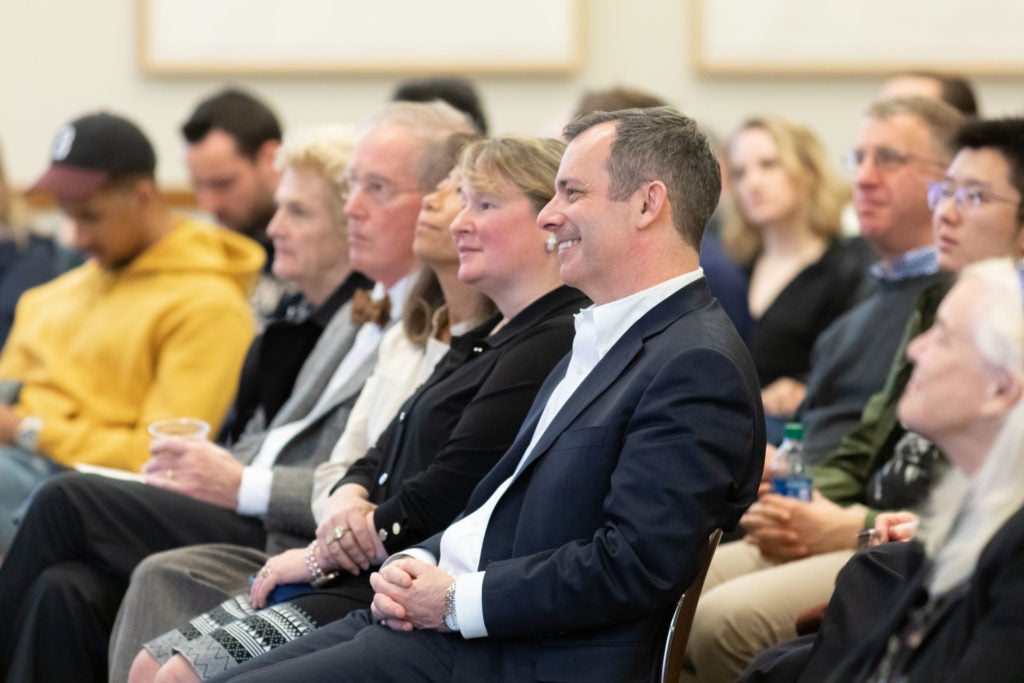
Later that same year, Scalia protested the Supreme Court’s decision in Roper v. Simmons, in which it ruled that states could no longer sentence juveniles under the age of 18 to capital punishment. In his majority opinion, Associate Justice Anthony Kennedy ’61 had cited the condemnation of juvenile executions by many other nations around the world.
But in a dissenting opinion, Scalia objected to the use of foreign law to support the Court’s decision. “The basic premise of the Court’s argument—that American law should conform to the laws of the rest of the world—ought to be rejected out of hand,” he wrote. Scalia also noted the many instances in which, in his view, the Court had disregarded examples of foreign laws that didn’t support the majority’s arguments. “To invoke alien law when it agrees with one’s own thinking, and ignore it otherwise, is not reasoned decision-making, but sophistry.”
But to focus on these and other examples of his “emphatic disapproval” to references to foreign law, as well as “his rather colorful way of expressing them,” is misleading, Glendon argued.
Prior to his time on the bench, she noted, Scalia had taught comparative law and private international law for 12 years at the University of Chicago and the University of Virginia. He had also said that “comparative law should be a mandatory subject in every American law school.”
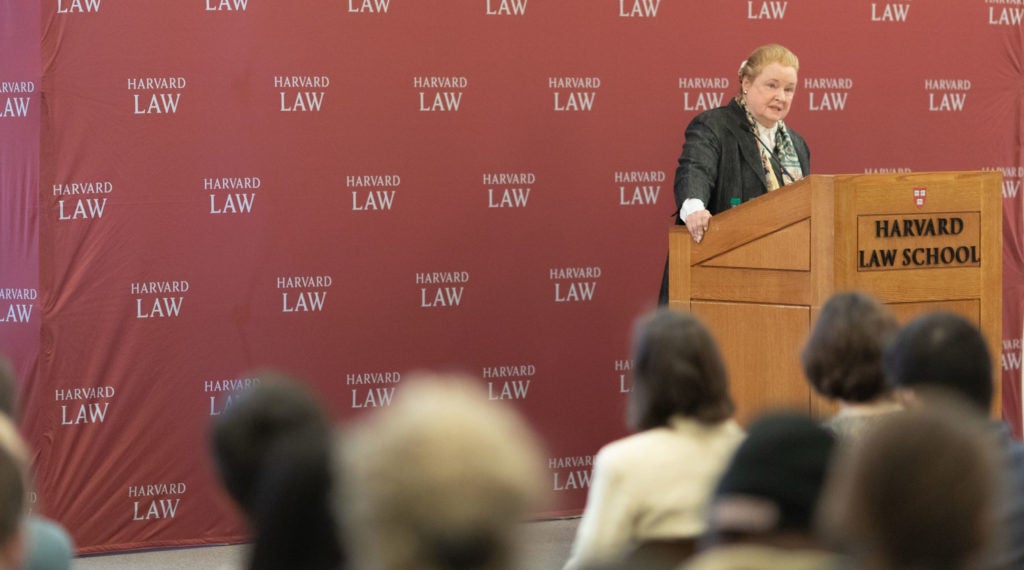
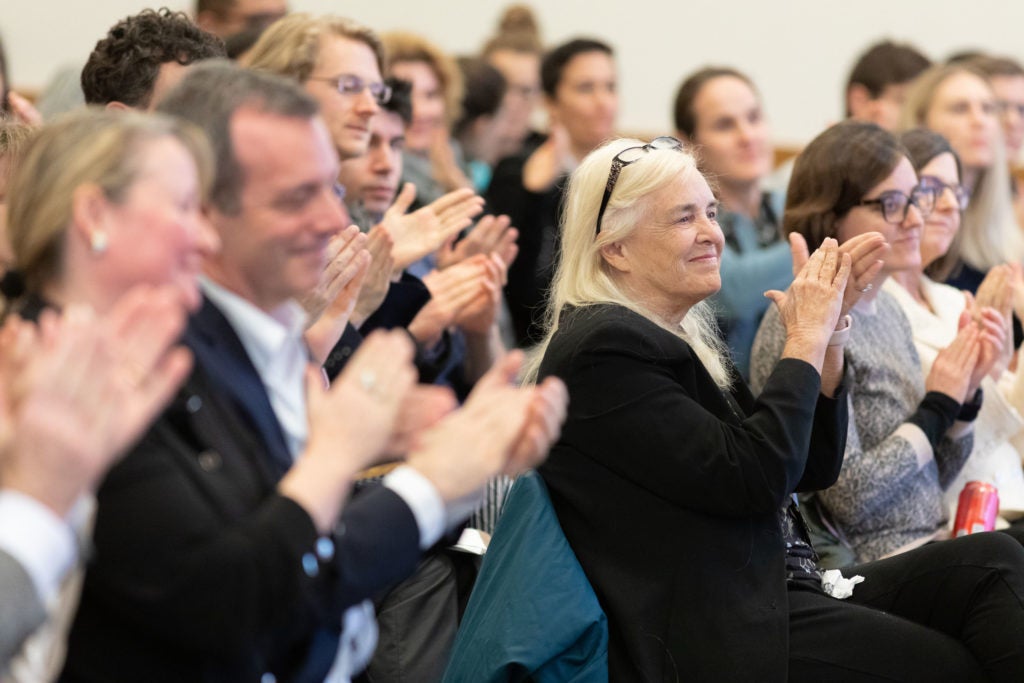
Glendon cited several examples in which Scalia approved of the use of foreign law. In Washington v. Glucksberg, for example, Scalia joined the majority in the unanimous 1997 decision upholding a state ban on assisted suicide.
“As evidence of the rational basis for the [Washington State] legislature’s judgment, the Court cited studies on euthanasia in the Netherlands that indicated that the practice there was not being confined to competent terminally ill adults and that governmental attempts to regulate the practice had not been fully effective,” she recounted. “The Court also cited legislation from many European countries making it a crime to assist a suicide.”
Glendon explained the apparent inconsistency by noting that, for Scalia, it was one thing for a state legislature to use evidence from other countries about how similar laws worked, and another for the Court to rely on those examples to determine a law’s constitutionality.
In fact, the legislative process is an area that she believes Scalia would support an increase in exposure to foreign law.
“More attention to foreign experience could be helpful especially when lawmakers are struggling with new and emerging problems or existing problems that our legal system doesn’t handle very well,” Glendon said. Doing so, “can, at a minimum, give us a better understanding of the issues and often can do more providing insight into how various legal approaches work out in practice, what advantages they offer, what risks or indirect consequences they are likely to entail.”
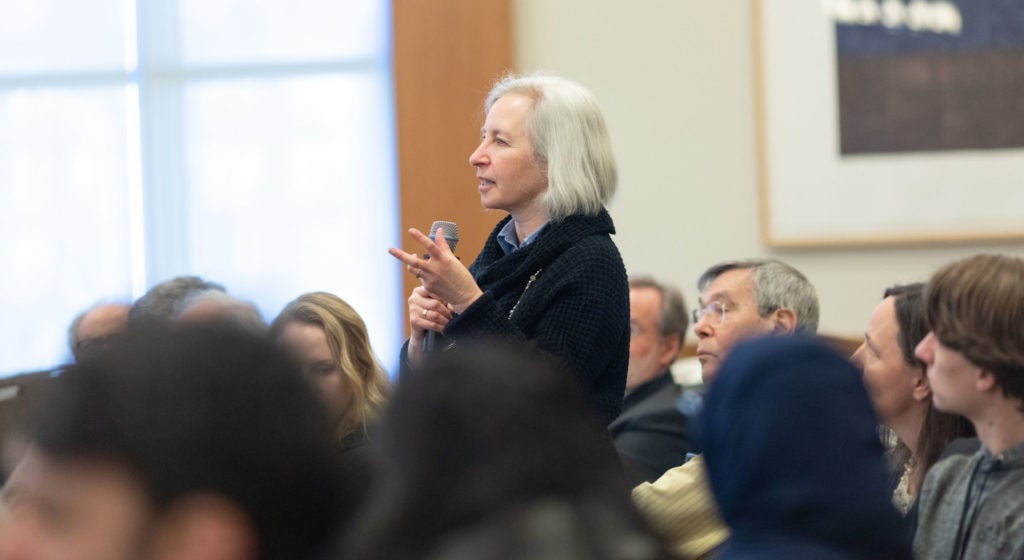
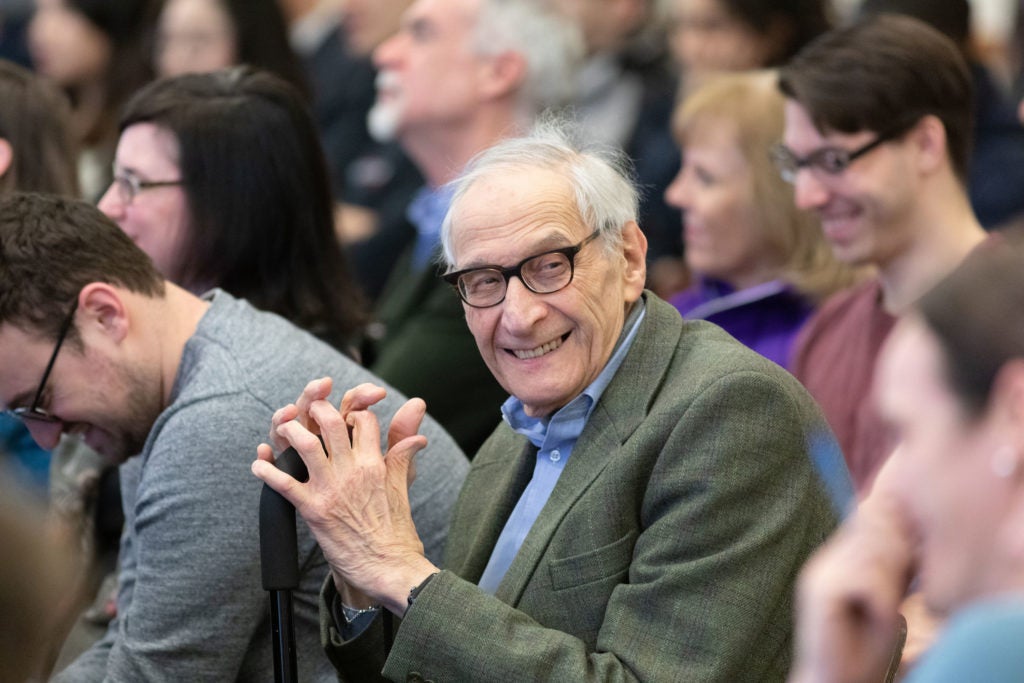
This type of “legal borrowing” has benefited American law many times in the past, she said, including reforms to American probate law implemented by German and Austrian émigré scholars in the 1930s, as well as the adoption of the Uniform Commercial Code in 1952, which was also based on German models.
In today’s increasingly globalized society and economy, she argued that knowledge of foreign law is also becoming more important for legal practitioners.
“Today, attorneys … with a lot of knowledge of foreign law are increasingly in demand,” Glendon said. “And firms always need local counsel for foreign business, but you have to have somebody who can communicate with local counsel, and who can be persuasive in foreign settings.”
With that in mind, she urged students in the audience to take language courses at Harvard University.
“Google Translate just doesn’t cut it,” Glendon said, recounting a statement made by a former student who wanted to work on international law.
Related Reading
Watch: The Antonin Scalia Lectures
Since the series was funded by an anonymous donor in 2013, a number of current and former faculty members and distinguished guest speakers have given talks at Harvard Law on subjects intended to promote and advance the understanding of the founding principles and core doctrines of the U.S. Constitution, beginning in 2014 with Judge Frank Easterbrook, of the United States Court of Appeals for the Seventh Circuit.
